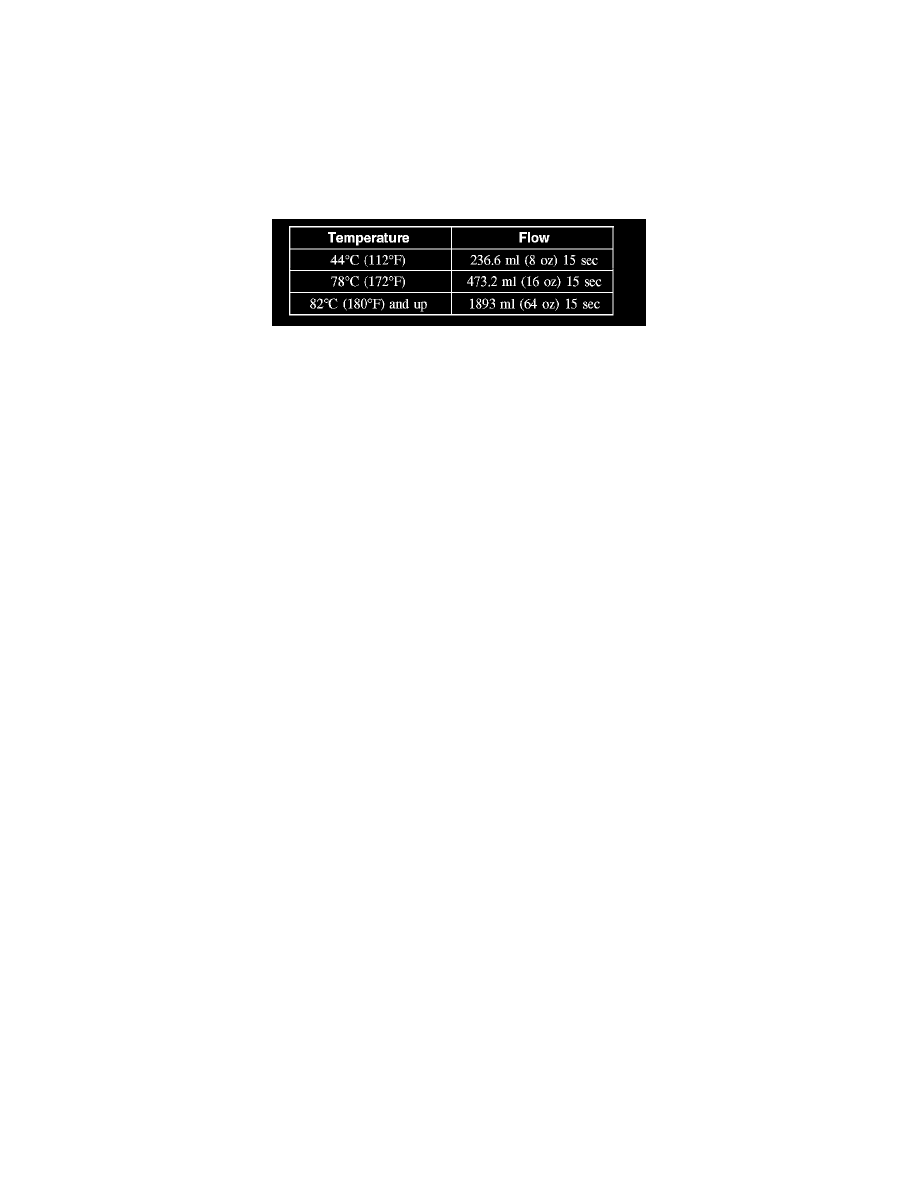E 450 V10-6.8L (2008)

3. Raise and support the vehicle.
4. Disconnect the cooler return tube (rear fitting) from the transmission case.
5. Connect one end of a hose to the cooler return tube and route the other end of the hose up to a point where it can be inserted into the funnel at the
transmission fluid filler tube.
6. Remove the supports and lower the vehicle.
7. Insert the end of a hose into the funnel.
8. Start the engine and run at idle with the transmission in the NEUTRAL range.
9. Once a steady flow of transmission fluid (without air bubbles) is observed, remove the hose from the funnel and place the hose in a measuring
container for 15 seconds. After 15 seconds, place the hose back into the funnel and turn the engine off. Measure the amount of transmission fluid
in the container.
There is a temperature valve in the pump. Cooler flow rates will vary according to transmission fluid temperature. The use of a scan tool will
determine the actual transmission fluid temperature. If adequate flow is observed into the container, the test is now complete.
10. If adequate flow is not observed, turn off the engine. Disconnect the hose from the cooler return tube (transmission inlet).
11. Disconnect the fluid cooler tube from the front case fitting and connect the hose to the case fitting (converter out) and repeat Steps 7, 8 and 9.
12. If adequate flow is not observed from the transmission, look for a plugged or crushed cooler tube and/or fluid cooler.
13. If adequate flow is still not observed, repair and/or installation of a new pump and/or torque converter may be required.
Transmission Fluid Cooler Leaks at Radiator
Transmission Fluid Cooler Leaks at Radiator
Transmission fluid may leak between the radiator in-tank transmission fluid cooler and the transmission fluid cooler fitting (not the transmission fluid
cooler tube into the fitting), which may result in a residue of transmission fluid on the radiator tank around the transmission fluid cooler fitting.
Insufficient thread sealer on the transmission fluid cooler fitting may cause this.
1. CAUTION: Oil-based solvents and cleaners should not be used when cleaning the radiator. Oil-based solvents and cleaners can damage
O-ring seals.
Clean the area around the transmission fluid cooler fittings.
2. Verify that transmission fluid is leaking between the transmission fluid cooler tube fitting into the transmission fluid cooler (not the transmission
fluid cooler and the transmission fluid cooler fitting).
^
Inspect the rubber transmission fluid cooler hose and the transmission fluid cooler fitting clamp. If the leak is at the transmission fluid cooler
fitting, install a new transmission fluid cooler fitting clamp or the transmission fluid cooler hose.
3. If the leak is at the transmission cooler fittings, install a new radiator. Refer to Cooling System.
